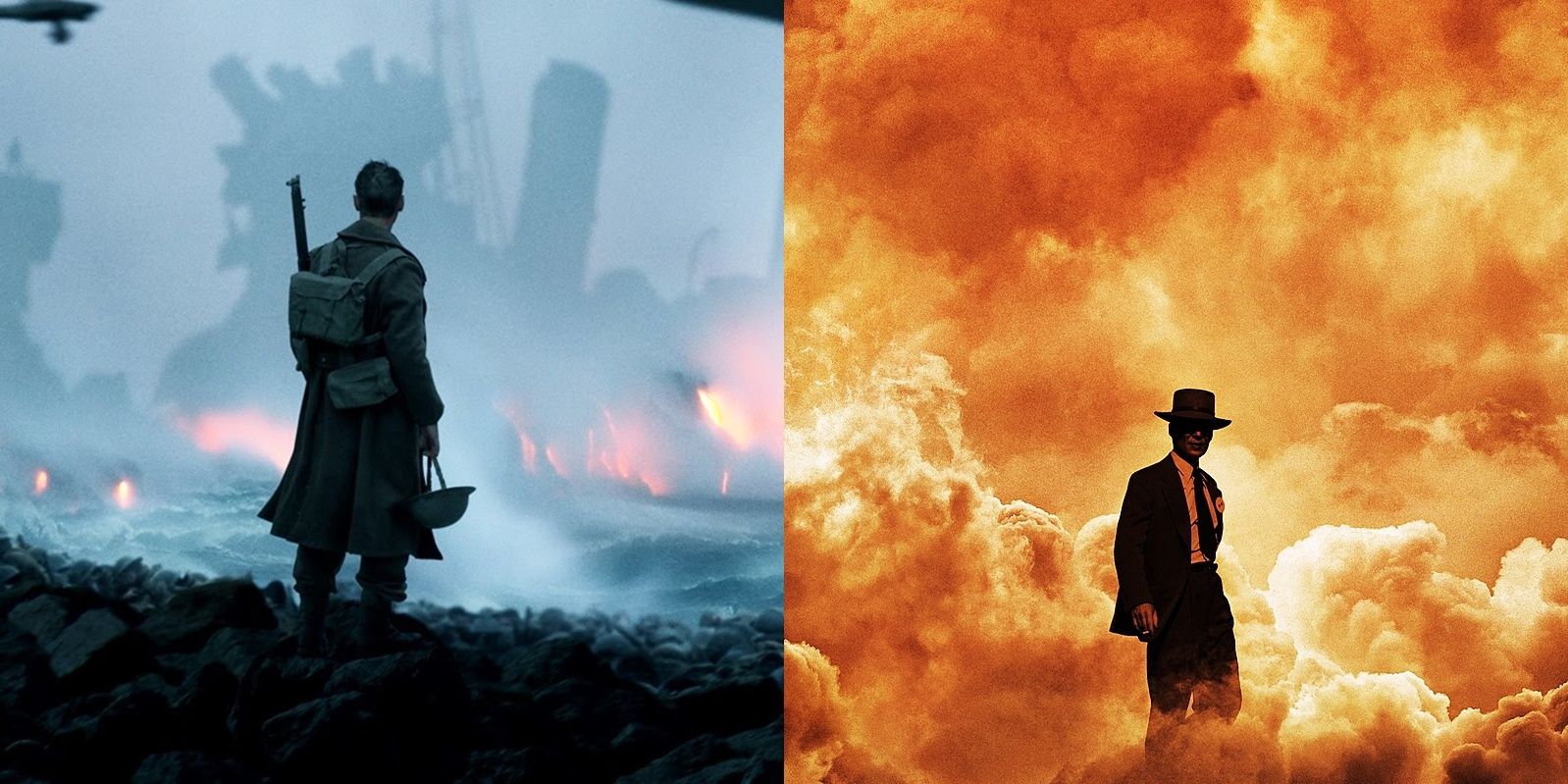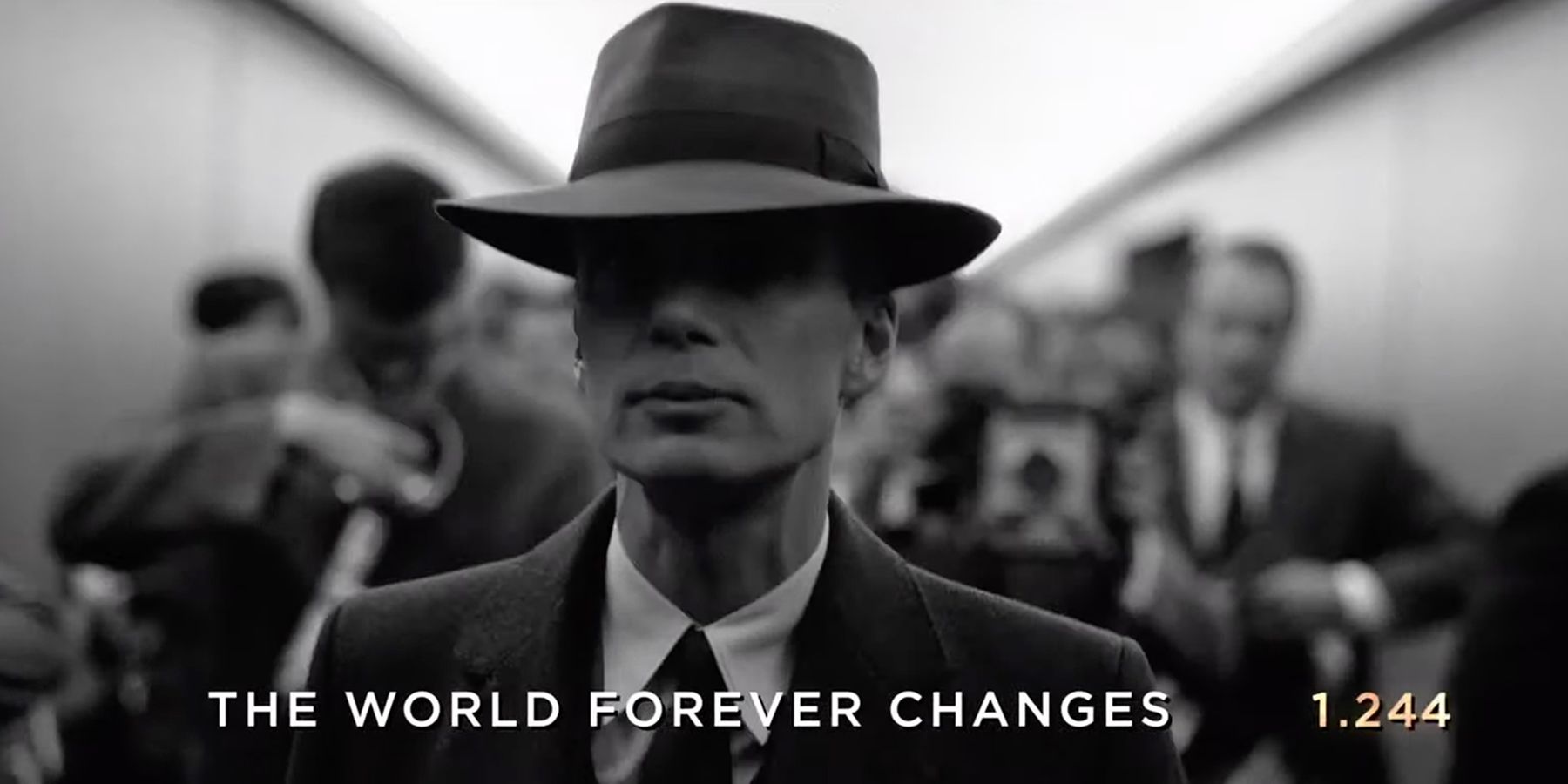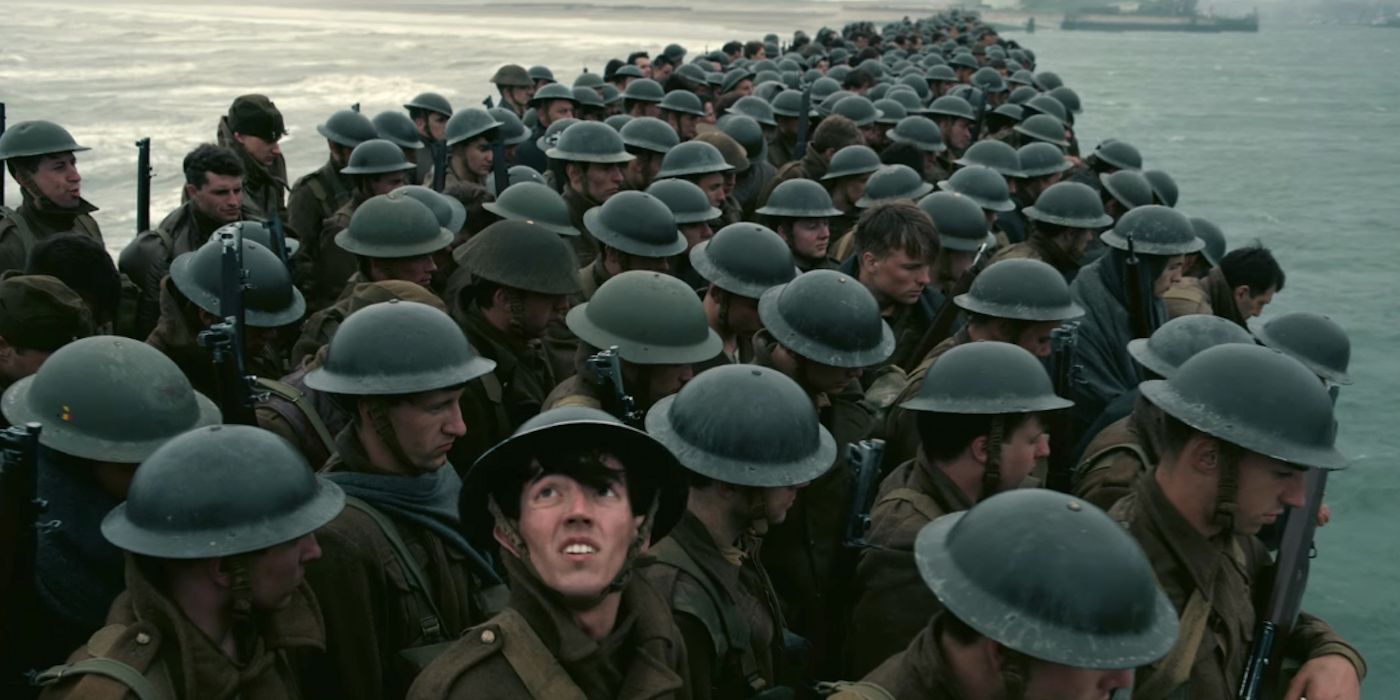None other than the great Guillermo del Toro once described English film director Christopher Nolan as "an emotional mathematician." His work seeks to take the all-too-cold logical language of the ticking clock and reframe it in the discussion of the human experience. That unique and often controversial creative vision is now being focused on the tale of J. Robert Oppenheimer.
Oppenheimer is a biopic of the eponymous theoretical physicist whose work was instrumental in the creation of the atomic bomb. The man who solved the math problem that could one day kill us all now has the glory of being portrayed by Cillian Murphy in an appropriately weighty production.
The first trailer for Oppenheimer dropped out of nowhere with one of the most harrowing displays a historical biopic has ever seen. Apocalyptic flames give way to a ticking timer, counting the moments down to the very second when the film will be released in theaters. Fans who catch the trailer on YouTube will discover that it's a live broadcast repeatedly updating its on-screen clock with current information. Between that intense feeling of foreboding and the film's haunting tagline "The World Forever Changes", Oppenheimer is being set up as an event. This marketing angle also gives away the fact that the film will be sticking closely to one of Nolan's favorite storytelling themes; the mechanics of time. The weighty emphasis, historical importance, and central theme evokes one of Nolan's other works heavily, that being his 2017 film Dunkirk.
Dunkirk is a historical epic about the 1940 evacuation of over 300,000 English and allied soldiers from the eponymous French beach commune. It stars a huge ensemble cast in the roles of desperate troops in various states of nightmarish certain death. The most explicit evil on display is the high command, ordering hard-fighting men into the abyss to save their own skins and prioritizing the future of their assault over human life. World War II history can occasionally feel a bit stale, but Nolan finds a place of sociological interest and reframes the well-documented violence as an almost otherworldly horror. It's a matter of perspective that grounds the audience fully behind the eyes of the men who felt doomed to die on that beach and in that sea. It further focuses the audience's gaze with a unique editing trick, dividing its story into three simultaneous storylines which operate on vastly different timetables.
Like the trailer for Oppenheimer, the entire structure of Dunkirk is a ticking clock. Its three concurrent storylines depict characters who are one week, one day, and one hour away from the evacuation. The events take place on screen with the magic of editing, reducing some events to a fraction of their real-world period while depicting others with an accurate temporal allotment. Hours can feel like seconds, minutes can feel like days, and through perspective, Nolan wants to give the audience that experience firsthand. It's a tight and well-crafted film that succeeds in imparting the awe, the horror, and the blazing high of war. It clearly takes a lot from previous standouts of the genre like Spielberg's Saving Private Ryan, but it adds Nolan's unique flair to create something special. Nolan is now bringing his particular sensibilities to Oppenheimer's tale, which might be a new challenge.
Oppenheimer won't have the instant immersive horror of a sinking ship or the action setpiece of a World War II dogfight. It will primarily cover the work of scientists in laboratories, doing complex equations, and discussing the moral questions of their grim task. It'll be much tougher to make gripping moment-to-moment cinema out of such dry material, but a well-executed film can still make it as tense as combat. Films like David Fincher's The Social Network have managed to turn people typing into expertly-crafted battles of will, but it's an easy thing to mess up. The trailer seems to cover aspects of the media apparatus surrounding the Manhattan Project, as well as its chief scientists. Politics, journalism, science, power, and many other important issues seem to liven up the theoretically dry work.
Just like Dunkirk, Oppenheimer is a story about an event that the audience knows is coming. The eponymous scientist's name isn't brought up without reference to the project that defined his life. Where Dunkirk was about the life-affirming struggle in combat while waiting for rescue, Oppenheimer is about the man who created a new form of violence. Months before release, Nolan has created a palpable tension for the moment the atom bomb reaches the screen, and that power needs to continue through the film. Dunkirk was an excellent historical epic, and Oppenheimer seeks to cover an even more important aspect of the same period. Christopher Nolan has a very particular way of seeing things, and with the help of an excellent ensemble cast, he might just be able to create two successes from wildly different sources.



